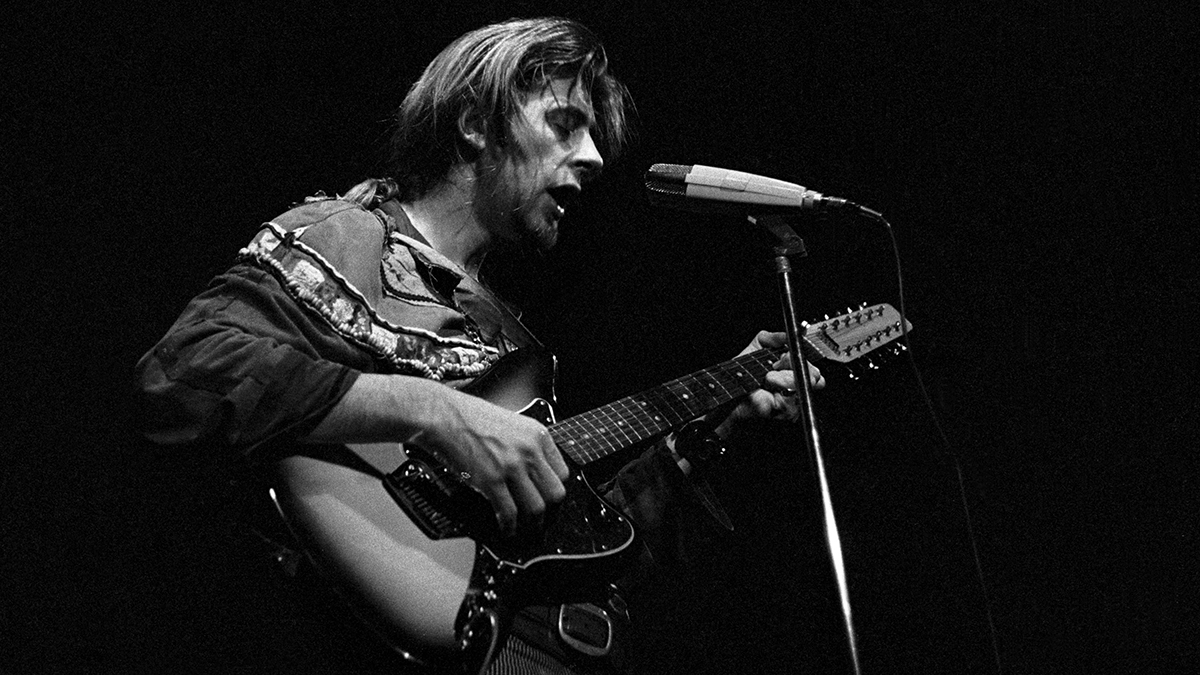
John Mayall – the legendary British blues pioneer who masterminded the Bluesbreakers and helped catapult the careers of some of modern music’s most influential guitar players – has passed away at the age of 90.
The news was confirmed by Mayall’s family, who published a statement confirming the bluesman had passed away surrounded by his family on Monday at his home in California.
“It is with heavy hearts that we bear the news that John Mayall passed away peacefully in his California home yesterday, July 22, 2024, surrounded by his loving family,” the statement reads.
“Health issues that forced John to end his epic touring career have finally led to peace for one of this world’s greatest road warriors. John Mayall gave us ninety years of tireless efforts to educate, inspire and entertain.
“We, the Mayall family, cannot thank his fans and long-list of bandmembers enough for the support and love we were blessed to experience secondhand over the last six decades. Keep on playing the blues somewhere, John. We love you.”
A post shared by John Mayall (@johnmayallofficial)
A photo posted by on
Born in Macclesfield, England, in 1933, John Mayall began playing the guitar at an early age, having grown up surrounded by his father’s collection of blues and jazz records.
After playing around with the banjo and ukulele, Mayall acquired his first proper electric guitar – a cheaply made semi-electric Weldone hollowbody – while on a week’s leave from the Army in Japan in 1954.
Get The Pick Newsletter
All the latest guitar news, interviews, lessons, reviews, deals and more, direct to your inbox!
“It’s the guitar that’s on the cover of [Mayall’s 1967 album] The Blues Alone,” Mayall once told Guitar World. “I did all the fancy carved engraving to make it look more distinctive. It started out as a regular six-string guitar, but I tried making it into a 12-string. It was a great guitar.”
Such early exposure to the guitar and blues would continue to inform Mayall’s sound throughout his career, with the budding multi-instrumentalist eventually moving to London in the early ‘60s to start a career as a professional musician.
In February 1963, Mayall masterminded the inaugural lineup of the Bluesbreakers – a blues collective who attracted widespread attention a few years later following a session that featured the guitar talents of Eric Clapton and the production nous of a 21-year-old Jimmy Page.
“He didn’t approach me,” Mayall recalled of his time playing with Clapton. “I had to dig him out because he was so disenchanted with the whole scene right after he left the Yardbirds. I had to talk with him and convince him that what I was doing was more genuine.
“I would give credit to the remarkable difference Eric Clapton made to my band’s sound. He really was the first to understand what the blues was all about.”
With Clapton’s help, Mayall released Blues Breakers: John Mayall with Eric Clapton (AKA The Beano Album) in 1966 – a timeless piece of music that is still widely regarded as a classic blues record, and one that further helped establish Clapton as a blues force to be reckoned with. It also pioneered the now-iconic combo of running a Gibson Les Paul through a cranked Marshall Bluesbreaker.
“I think it’s the overall quality of the playing and the fact that Eric was totally unique at that particular time,” Mayall said of the album's success during his final interview with Guitar World. “It’s still a testament of his command of the blues at such an early age. Eric was definitely ahead of his time, and I think the album captured everything very, very well.”
Slowhand – who had left the Yardbirds by the time he linked up with Mayall – was but one of many young guitar stars who would join the rotating cast of the Bluesbreakers during the ‘60s, with Mayall giving a platform to numerous aspiring players who were all destined for greatness.
In other various configurations of the lineup throughout the ‘60s, Mayall recruited Peter Green and Mick Taylor – both teenagers at the time – to help flesh out the collective’s sound. Other musicians employed over the years included Buddy Whittington, Walter Trout, Coco Montoya, Jack Bruce, John McVie, Mick Fleetwood, and more.
“People often ask me about the differences between Peter and Eric, but I don’t judge guitarists by the number of notes they play,” he previously noted of the collective’s changing lineup. “I just want them to have something moving and original to say.”
Spearheading the British blues boom of the 1960s, the Bluesbreakers helped put the blues in front of a wider audience in the UK, earning its leader the mantle of ‘The Godfather of British Blues’. With just a few intermissions, the group continued to record and tour over the decades, right up until the Bluesbreaker name was retired in 2008.
Across his career, Mayall released more than 50 albums, with highlights including A Hard Road (1967), USA Union (1970) and Back To The Roots (1971).
In 2021, as a result of the pandemic and his “advancing age”, Mayall brought an end to his epic six-decade-plus touring career, which spanned back to his first live shows in 1956. In April, it was announced Mayall will be inducted into the Rock and Roll Hall of Fame later this year.
"I’m proud of everything I’ve done,” Mayall reflected to Guitar World. “I’m glad people still enjoy listening to my music. I’ve never had any hit records or things that you might think would be important, but whatever I’ve done, I’m glad it still exists."

Matt is the GuitarWorld.com News Editor. He has a Masters in the guitar, a degree in history, and has spent the last 16 years playing everything from blues and jazz to indie and pop. When he’s not combining his passion for writing and music during his day job, Matt records for a number of UK-based bands and songwriters as a session musician.
“A virtuoso beyond virtuosos”: Matteo Mancuso has become one of the hottest guitar talents on the planet – now he’s finally announced his first headline US tour
“His songs are timeless, you can’t tell if they were written in the 1400s or now”: Michael Hurley, guitarist and singer/songwriter known as the ‘Godfather of freak folk,’ dies at 83












